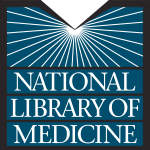- Отрасли: Library & information science
- Number of terms: 152252
- Number of blossaries: 0
- Company Profile:
The National Library of Medicine (NLM), on the campus of the National Institutes of Health in Bethesda, Maryland, is the world's largest medical library. The Library collects materials and provides information and research services in all areas of biomedicine and health care.
1) A nonnitrogenous starchy food.
2) A waxy translucent substance consisting of protein in combination with polysaccharides that is deposited in some animal organs and tissue under abnormal conditions (as in Alzheimer's disease).
Industry:Medical
The occurrence of one or more extra or missing chromosomes leading to an unbalanced chromosome complement, or, any chromosome number that is not an exact multiple of the haploid number.
Industry:Medical
A protein found especially in microfilaments (as those comprising myofibrils) and active in muscular contraction, cellular movement, and maintenance of cell shape.
Industry:Medical
The major protein component of high density lipoproteins. It is instrumental in promoting efflux of cholesterol from extrahepatic tissue to the liver where it is metabolized and excreted from the body. The compound is the activator of lecithin-cholesterol acyltransferase which forms cholesteryl esters in HDL. The gene for this apolipoprotein is found on the long arm of chromosome 11.
Industry:Medical
1) Protein components of lipoproteins which remain after the lipids to which the proteins are bound have been removed; they play an important role in lipid transport and metabolism.
2) The protein component of lipoproteins.
3) Any of the proteins that combine with a lipid to form a lipoprotein and that are now grouped into four classes designated A, B, C, and E and formerly into a fifth class D now considered part of A -- often followed by the letter designating the class or by the letter and a number expressed in Roman or Arabic numerals to indicate a specific member of the class (apolipoprotein B is a major component of LDL).
Industry:Medical
1) Protruding sac in the wall of a vein, artery, or heart, frequently caused by microbial infection; may present as pain, pressure on nearby organs, or cardiac weakening.
2) A sac formed by the dilatation of the wall of an artery, a vein, or the heart.
3) An abnormal blood-filled dilatation of a blood vessel and especially an artery resulting from disease of the vessel wall.
Industry:Medical
A pungent colorless gaseous alkaline compound of nitrogen and hydrogen NH3 that is very soluble in water and can easily be condensed to a liquid by cold and pressure.
Industry:Medical
1) An alteration in the normal sequence of a gene, the significance of which is unclear until further study of the genotype and corresponding phenotype in a sufficiently large population; complete gene sequencing often identifies numerous (sometimes hundreds) allelic variants for a given gene.
2) A variation in a genetic sequence whose association with disease risk is unknown. Also called variant of uncertain significance, unclassified variant, and VUS.
Industry:Medical
